At a recent KPMG Robotic Innovations event, Futurist and friend Gerd Leonhard delivered a keynote titled “The Digital Transformation of Business and Society: Challenges and Opportunities by 2020”. I highly recommend viewing the Video of his presentation. As Gerd describes, he is a Futurist focused on foresight and observations – not predicting the future. We are at a point in history where every company needs a Gerd Leonhard. For many of the reasons presented in the video, future thinking is rapidly growing in importance. As Gerd so rightly points out, we are still vastly under-estimating the sheer velocity of change.
With regard to future thinking, Gerd used my future scenario slide to describe both the exponential and combinatorial nature of future scenarios – not only do we need to think exponentially, but we also need to think in a combinatorial manner. Gerd mentioned Tesla as a company that really knows how to do this.
 Frank Diana, Tata Consultancy Services
Frank Diana, Tata Consultancy Services
He then described our current pivot point of exponential change: a point in history where humanity will change more in the next twenty years than in the previous 300. With that as a backdrop, he encouraged the audience to look five years into the future and spend 3 to 5% of their time focused on foresight. He quoted Peter Drucker (“In times of change the greatest danger is to act with yesterday’s logic”) and stated that leaders must shift from a focus on what is, to a focus on what could be. Gerd added that “wait and see” means “wait and die” (love that by the way). He urged leaders to focus on 2020 and build a plan to participate in that future, emphasizing the question is no longer what-if, but what-when. We are entering an era where the impossible is doable, and the headline for that era is: exponential, convergent, combinatorial, and inter-dependent – words that should be a key part of the leadership lexicon going forward. Here are some snapshots from his presentation:
- Because of exponential progression, it is difficult to imagine the world in 5 years, and although the industrial era was impactful, it will not compare to what lies ahead. The danger of vastly under-estimating the sheer velocity of change is real. For example, in just three months, the projection for the number of autonomous vehicles sold in 2035 went from 100 million to 1.5 billion
- Six years ago Gerd advised a German auto company about the driverless car and the implications of a sharing economy – and they laughed. Think of what’s happened in just six years – can’t imagine anyone is laughing now. He witnessed something similar as a veteran of the music business where he tried to guide the industry through digital disruption; an industry that shifted from selling $20 CDs to making a fraction of a penny per play. Gerd’s experience in the music business is a lesson we should learn from: you can’t stop people who see value from extracting that value. Protectionist behavior did not work, as the industry lost 71% of their revenue in 12 years. Streaming music will be huge, but the winners are not traditional players. The winners are Spotify, Apple, Facebook, Google, etc. This scenario likely plays out across every industry, as new businesses are emerging, but traditional companies are not running them. Gerd stressed that we can’t let this happen across these other industries
- Anything that can be automated will be automated: truck drivers and pilots go away, as robots don’t need unions. There is just too much to be gained not to automate. For example, 60% of the cost in the system could be eliminated by interconnecting logistics, possibly realized via a Logistics Internet as described by economist Jeremy Rifkin. But the drive towards automation will have unintended consequences and some science fiction scenarios could play out. Humanity and technology are indeed intertwining, but technology does not have ethics. A self-driving car would need ethics, as we make difficult decisions while driving all the time. How does a car decide to hit a frog versus swerving and hitting a mother and her child? Speaking of science fiction scenarios, Gerd predicts that when these things come together, humans and machines will have converged:
- Gerd has been using the term “Hellven” to represent the two paths technology can take. Is it 90% heaven and 10% hell (unintended consequences), or can this equation flip? He asks the question: Where are we trying to go with this? He used the real example of Drones used to benefit society (heaven), but people buying guns to shoot them down (hell). As we pursue exponential technologies, we must do it in a way that avoids negative consequences. Will we allow humanity to move down a path where by 2030, we will all be human-machine hybrids? Will hacking drive chaos, as hackers gain control of a vehicle? A recent Jeep recall of 1.4 million jeeps underscores the possibility. A world of super intelligence requires super humanity – technology does not have ethics, but society depends on it. Is this Ray Kurzweil vision what we want?
- Is society truly ready for human-machine hybrids, or even advancements like the driverless car that may be closer to realization? Gerd used a very effective Video to make the point
- Followers of my Blog know I’m a big believer in the coming shift to value ecosystems. Gerd described this as a move away from Egosystems, where large companies are running large things, to interdependent Ecosystems. I’ve talked about the blurring of industry boundaries and the movement towards ecosystems. We may ultimately move away from the industry construct and end up with a handful of ecosystems like: mobility, shelter, resources, wellness, growth, money, maker, and comfort
- Our kids will live to 90 or 100 as the default. We are gaining 8 hours of longevity per day – one third of a year per year. Genetic engineering is likely to eradicate disease, impacting longevity and global population. DNA editing is becoming a real possibility in the next 10 years, and at least 50 Silicon Valley companies are focused on ending aging and eliminating death. One such company is Human Longevity Inc., which was co-founded by Peter Diamandis of Singularity University. Gerd used a quote from Peter to help the audience understand the motivation: “Today there are six to seven trillion dollars a year spent on healthcare, half of which goes to people over the age of 65. In addition, people over the age of 65 hold something on the order of $60 trillion in wealth. And the question is what would people pay for an extra 10, 20, 30, 40 years of healthy life. It’s a huge opportunity”
- Gerd described the growing need to focus on the right side of our brain. He believes that algorithms can only go so far. Our right brain characteristics cannot be replicated by an algorithm, making a human-algorithm combination – or humarithm as Gerd calls it – a better path. The right brain characteristics that grow in importance and drive future hiring profiles are:
- Google is on the way to becoming the global operating system – an Artificial Intelligence enterprise. In the future, you won’t search, because as a digital assistant, Google will already know what you want. Gerd quotes Ray Kurzweil in saying that by 2027, the capacity of one computer will equal that of the human brain – at which point we shift from an artificial narrow intelligence, to an artificial general intelligence. In thinking about AI, Gerd flips the paradigm to IA or intelligent Assistant. For example, Schwab already has an intelligent portfolio. He indicated that every bank is investing in intelligent portfolios that deal with simple investments that robots can handle. This leads to a 50% replacement of financial advisors by robots and AI
- This intelligent assistant race has just begun, as Siri, Google Now, Facebook MoneyPenny, and Amazon Echo vie for intelligent assistant positioning. Intelligent assistants could eliminate the need for actual assistants in five years, and creep into countless scenarios over time. Police departments are already capable of determining who is likely to commit a crime in the next month, and there are examples of police taking preventative measures. Augmentation adds another dimension, as an officer wearing glasses can identify you upon seeing you and have your records displayed in front of them. There are over 100 companies focused on augmentation, and a number of intelligent assistant examples surrounding IBM Watson; the most discussed being the effectiveness of doctor assistance. An intelligent assistant is the likely first role in the autonomous vehicle transition, as cars step in to provide a number of valuable services without completely taking over. There are countless Examples emerging
- Gerd took two polls during his keynote. Here is the first: how do you feel about the rise of intelligent digital assistants? Answers 1 and 2 below received the lion share of the votes
- Collectively, automation, robotics, intelligent assistants, and artificial intelligence will reframe business, commerce, culture, and society. This is perhaps the key take away from a discussion like this. We are at an inflection point where reframing begins to drive real structural change. How many leaders are ready for true structural change?
- Gerd likes to refer to the 7-ations: Digitization, De-Materialization, Automation, Virtualization, Optimization, Augmentation, and Robotization. Consequences of the exponential and combinatorial growth of these seven include dependency, job displacement, and abundance. Whereas these seven are tools for dramatic cost reduction, they also lead to abundance. Examples are everywhere, from the 16 million songs available through Spotify, to the 3D printed cars that require only 50 parts. As supply exceeds demand in category after category, we reach abundance. As Gerd put it, in five years’ time, genome sequencing will be cheaper than flushing the toilet and abundant energy will be available by 2035 (2015 will be the first year that a major oil company will leave the oil business to enter the abundance of the renewable business). Other things to consider regarding abundance:
- Efficiency and business improvement is a path not a destination. Gerd estimates that total efficiency will be reached in 5 to 10 years, creating value through productivity gains along the way. However, after total efficiency is met, value comes from purpose. Purpose-driven companies have an aspirational purpose that aims to transform the planet; referred to as a massive transformative purpose in a recent book on exponential organizations. When you consider the value that the millennial generation places on purpose, it is clear that successful organizations must excel at both technology and humanity. If we allow technology to trump humanity, business would have no purpose
- In the first phase, the value lies in the automation itself (productivity, cost savings). In the second phase, the value lies in those things that cannot be automated. Anything that is human about your company cannot be automated: purpose, design, and brand become more powerful. Companies must invent new things that are only possible because of automation
- Technological unemployment is real this time – and exponential. Gerd talked to a recent study by the Economist that describes how robotics and artificial intelligence will increasingly be used in place of humans to perform repetitive tasks. On the other side of the spectrum is a demand for better customer service and greater skills in innovation driven by globalization and falling barriers to market entry. Therefore, creativity and social intelligence will become crucial differentiators for many businesses; jobs will increasingly demand skills in creative problem-solving and constructive interaction with others
- Gerd described a basic income guarantee that may be necessary if some of these unemployment scenarios play out. Something like this is already on the ballot in Switzerland, and it is not the first time this has been talked about:
- In the world of automation, experience becomes extremely valuable – and you can’t, nor should attempt to – automate experiences. We clearly see an intense focus on customer experience, and we had a great discussion on the topic on an August 26th Game Changers broadcast. Innovation is critical to both the service economy and experience economy. Gerd used a visual to describe the progression of economic value:
Source: B. Joseph Pine II and James Gilmore: The Experience Economy
- Gerd used a second poll to sense how people would feel about humans becoming artificially intelligent. Here again, the audience leaned towards the first two possible answers:
Gerd then summarized the session as follows:
The future is exponential, combinatorial, and interdependent: the sooner we can adjust our thinking (lateral) the better we will be at designing our future.
My take: Gerd hits on a key point. Leaders must think differently. There is very little in a leader’s collective experience that can guide them through the type of change ahead – it requires us all to think differently
When looking at AI, consider trying IA first (intelligent assistance / augmentation).
My take: These considerations allow us to create the future in a way that avoids unintended consequences. Technology as a supplement, not a replacement
Efficiency and cost reduction based on automation, AI/IA and Robotization are good stories but not the final destination: we need to go beyond the 7-ations and inevitable abundance to create new value that cannot be easily automated.
My take: Future thinking is critical for us to be effective here. We have to have a sense as to where all of this is heading, if we are to effectively create new sources of value
We won’t just need better algorithms – we also need stronger humarithms i.e. values, ethics, standards, principles and social contracts.
My take: Gerd is an evangelist for creating our future in a way that avoids hellish outcomes – and kudos to him for being that voice
“The best way to predict the future is to create it” (Alan Kay).
My Take: our context when we think about the future puts it years away, and that is just not the case anymore. What we think will take ten years is likely to happen in two. We can’t create the future if we don’t focus on it through an exponential lens


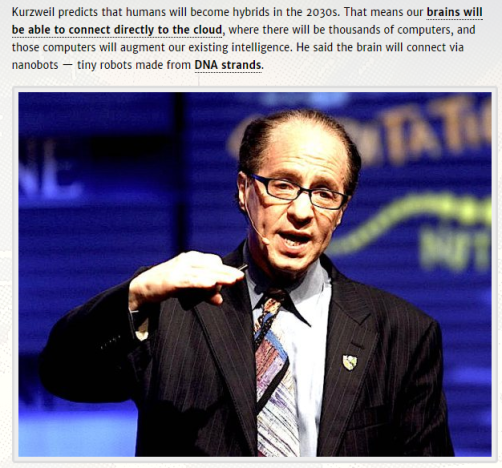
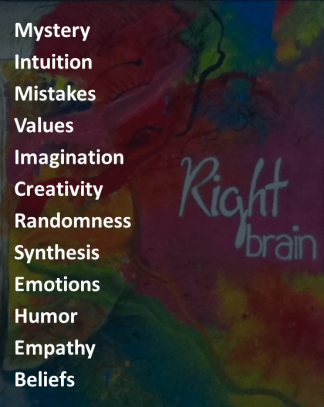

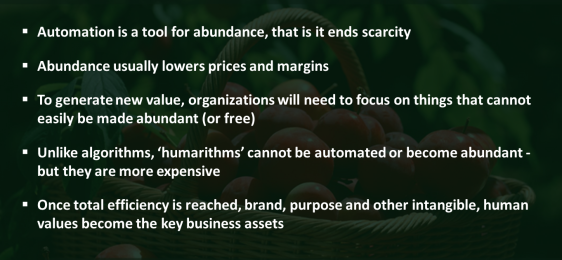
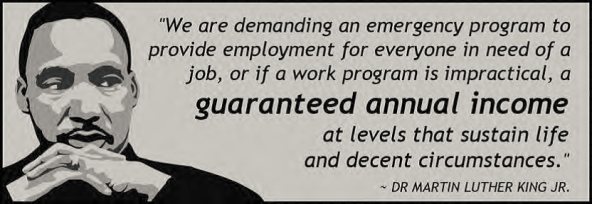
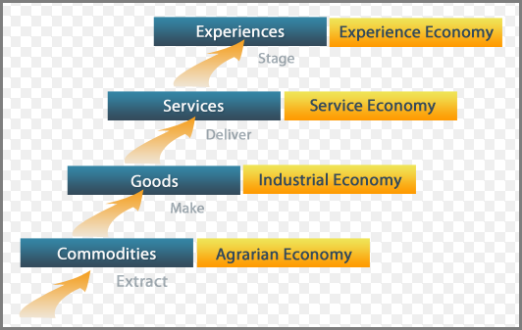

[…] At a recent KPMG Robotic Innovations event, Futurist and friend Gerd Leonhard delivered a keynote titled “The Digital Transformation of Business and Society: Challenges and Opportunities by 2020”. … […]
LikeLike
[…] READ MORE on Frank Diana’s blog: At a recent KPMG Robotic Innovations event, Futurist and friend Gerd Leonhard delivered a keynote titled “The Digital Transformation of Business and Society: Challenges and Opportunities by 2020”. I highly recommend viewing the Video of his presentation. As Gerd describes, he is a Futurist focused on foresight and observations – not predicting the future. We are at a point in history where every company needs a Gerd Leonhard. For many of the reasons presented in the video, future thinking is rapidly growing in importance. As Gerd so rightly points out, we are still vastly under-estimating the sheer velocity of change. With regard to future thinking, Gerd used my future scenario slide to describe both the exponential and combinatorial nature of future scenarios – not only do we need to think exponentially, but we also need to think in a combinatorial manner. Gerd mentioned Tesla as a company that really knows how to do this…. More […]
LikeLike
[…] By Frank Diana […]
LikeLike
Reblogged this on Lueny Morell.
LikeLike
[…] Sourced through Scoop.it from: frankdiana.wordpress.com […]
LikeLike
[…] “The Digital Transformation of Business and Society: Challenges and Opportunities by 2020”. Frank Diana highly recommend viewing the Video of his presentation. As Gerd describes, he is a Futurist […]
LikeLike
Excellent insights…thanks Frank
LikeLike
[…] At a recent KPMG Robotic Innovations event, Futurist and friend Gerd Leonhard delivered a keynote titled “The Digital Transformation of Business and Society: Challenges and Opportunities by 2020”. I highly recommend viewing the Video of his presentation. As Gerd describes, he is a Futurist focused on foresight and observations – not predicting the future. We are at a point in history where every company needs a Gerd Leonhard. For many of the reasons presented in the video, future thinking is rapidly growing in importance. As Gerd so rightly points out, we are still vastly under-estimating the sheer velocity of change. […]
LikeLike
[…] At a recent KPMG Robotic Innovations event, Futurist and friend Gerd Leonhard delivered a keynote titled “The Digital Transformation of Business and Society: Challenges and Opportunities by 2020”. […]
LikeLike
[…] 6) Frank Diana recently published a great piece on The Futures Agency blog aptly summarizing the key messages of a recent talk I held at the KPMG Executive Forum on Automation and Robotics in Chicago (the video is here): “if we allow technology to trump humanity, business would have no purpose”. That sums it up very nicely – thanks Frank! […]
LikeLike
[…] „the coming shift to value ecosystems. Gerd described this as a move away from Egosystems, where large companies are running large things, to interdependent Ecosystems. I’ve talked about the blurring of industry boundaries and the movement towards ecosystems. We may ultimately move away from the industry construct and end up with a handful of ecosystems like: mobility, shelter, resources, wellness, growth, money, maker, and comfort.“ Zum Originalartikel […]
LikeLike
[…] See on frankdiana.wordpress.com […]
LikeLike
[…] See on frankdiana.wordpress.com […]
LikeLike
[…] published at frankdiana.wordpress.com on September 10, […]
LikeLike
[…] we march relentlessly towards an Automated Society, scenarios emerge to provide signals. How far will we take this automation scenario? My post last […]
LikeLike
[…] I had a fascinating discussion with Futurist Gerd Leonhard that I captured in a post titled the Digital Transformation of Business and Society. To this day, that continues to be my most viewed post. It was a wide ranging conversation that […]
LikeLike